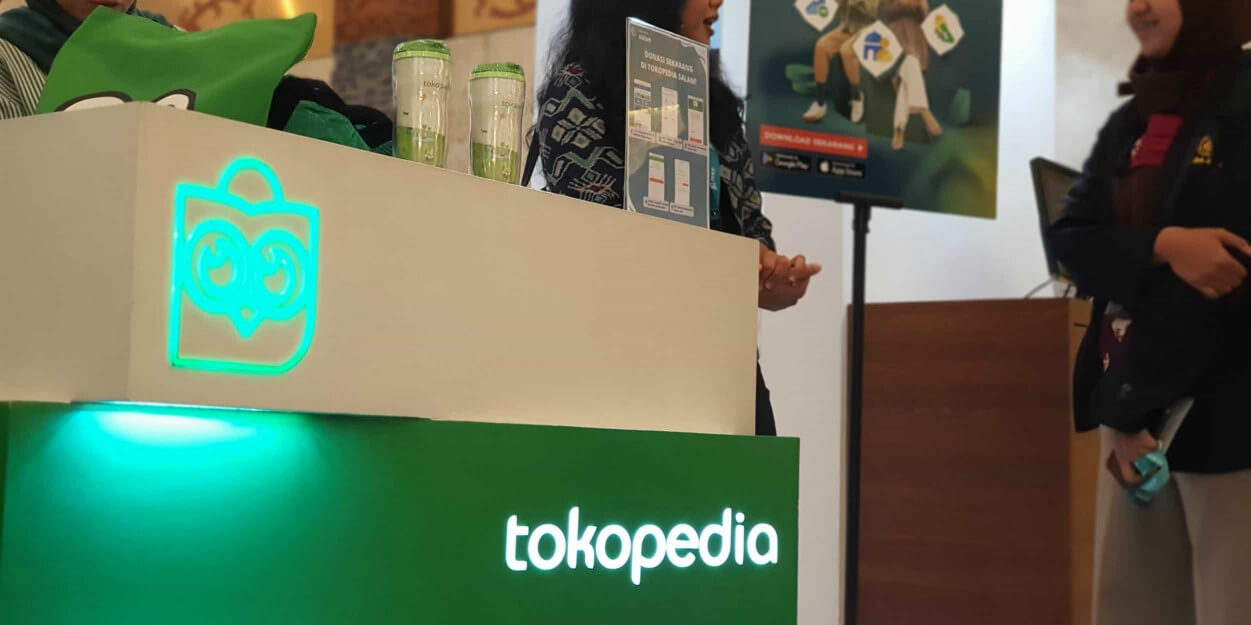Indonesia’s BNI Syariah, Tokopedia Salam partner to increase MSMEs access to financing
JAKARTA – In Indonesia, the work of strengthening the Islamic economy ecosystem is often taken on by government bodies working with the private sector. The country’s Shariah Economy Masterplan (MEKSI 2019-2024) takes an integrated approach towards the development of the Islamic economy.
This week, state-owned Islamic bank BNI Syariah signed an agreement with Tokopedia Salam to provide financing for the e-commerce platform’s merchants and partners.
“Technically, we want to promote our product through Tokopedia Salam's platform. They already have a wide customer base (around a third of Indonesia’s population uses the main Tokopedia platform) and they actively engage their customers through their website,” Bambang Sutrisno, BNI Syariah Corporate Secretary told Salaam Gateway.
The bank will also roll out content to increase users’ literacy in Islamic and personal finance.
“There are three driving factors for banking growth during the pandemic era: increasing awareness of halal lifestyle among society, government initiatives such as KNEKS, BPJPH and other Shariah economy and finance accelerating agencies, as well as digitalization that leads to cashless transactions and open banking that enables us, as a bank, to connect with third-party partners such as e-commerce,” said Bambang. KNEKS is the National Sharia Economy and Finance Committee and BPJPH is the government’s halal certification body.
Bambang explained that there is a “bottleneck” in that both Islamic finance take-up rate and Islamic financial literacy is still low.
Islamic banks held around 6% of the country’s total banking assets in July this year, and in 2019 the Islamic Economic Literacy Index was at 16.3% on a scale of up to 100%. Indonesia has 14 standalone Islamic banks and 20 Shariah-compliant windows, according to data from the Financial Services Authority (OJK).
Working with partners such as Tokopedia Salam is one way banks reach a much bigger user base.
“We hope we can enrich Tokopedia Salam’s halal ecosystem. In fact, we increased our capex on IT spending, including for these kinds of collaborations with fintech, this year to more than 100 billion rupiah, from previous years of less than 100 billion rupiah,” Bambang added.
Head of Tokopedia Salam Garri Juanda said the collaboration will enable the platform to have a bigger impact on the growth of the Islamic economy.
Tokopedia Salam has more than 42 product categories and 350 million products that are enabled by its AI to detect for halal certification by BPJPH/ LPPOM MUI.
The e-commerce platform has three core businesses: payment using Islamic bank partners, financing access for MSMEs and Islamic investment products including mutual funds, according to Garri.
“BNI Syariah has been our payment partner for a long time but we are now stepping up our collaboration in financing. As you know, most MSMEs are not bankable. They don’t have proper tax identification numbers (NPWP) and financial reports so we help them access financing by giving information such as their product delivery quality, if there are too many rejected goods etc. In this way Islamic banks can consider them for financing.
“This is also thanks to KNEKS officials such as Pak Sutan Emir who encourages us to keep exploring and strengthening the halal ecosystem,” added Garri.
(Reporting by Yosi Winosa; Editing by Emmy Abdul Alim [email protected])
© SalaamGateway.com 2020 All Rights Reserved
